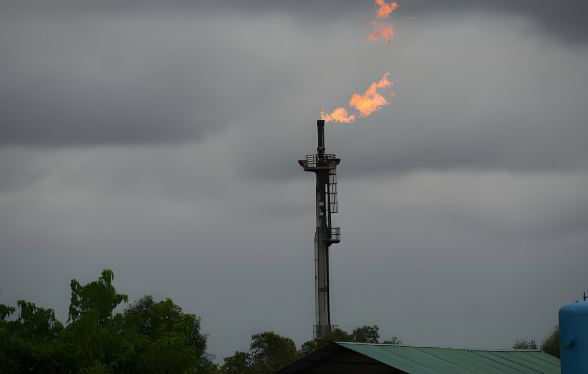Gas flaring is a perennial environmental problem that has plagued global oil and gas (O&G) exploration. In Nigeria particularly, gas flaring has persisted since oil exploration began in the country, emitting huge amount of greenhouse gases over the years. In order to address this, efforts have been made by both public and private sector (such as increment of the penalty of gas flaring for operating companies, implementation of Nigerian Gas Flare Commercialization Programme and gas to liquid conversion systems amongst others) to mitigate flaring within the sector.
At the forefront of leading this reduction are international O&G companies-IOCs (such as Shell, ExxonMobil, Chevron, TotalEnergies amongst others) and selected indigenous companies (such as Nigerian National Petroleum Company Ltd, Niger Delta Petroleum Resources, Seplat Petroleum Development Company Plc, Pan Ocean Oil Corporation Ltd) that are signatory members to different charters such as Zero Routine Flaring by 2030, O&G Climate Initiative, Global Flaring Reduction Partnership and the recent Oil and Gas Decarbonization Charter committing them to ending gas flaring.
While there has been a lot of conversation around finding solutions that would end gas flaring in Nigeria, there is a dimension to the different solutions proffered that faces significant challenge – assess to finance to fund these decarbonization technologies and investments for gas flaring abatement projects. Within the decade, there has been decreasing funding for the global O&G industry, especially Africa’s O&G sector. In fact, the Nigerian O&G sector only received about 4% of USD 70 billion investment that inflowed into the continent between 2015 and 2019, although Nigeria remains the biggest producer of crude in the continent. Also, funding accessibility for liquefied natural gas (LNG) projects that offer viable solution to ending gas flaring have faced significant challenges with only three LNG export projects getting Final Investment Decision in 2023, despite record high prices.
In other words, there are growing limited funding opportunities available to O&G companies to invest in gas utilization projects, carbon capture and storage systems and other forms of low carbon technologies to mitigate gas flaring. Also, the recent rave of transitioning toward clean energy sources especially in the Global North where a bulk of the investment opportunities come from, has affected the appetite of investors for fossil fuel projects, with growing interest in defunding natural gas projects. Hence, in the global investment market, there is a growing interest by investors to divert and commit their resources to sustainable and clean energy projects that would guarantee return on investment, while also addressing environmental sustainability in the long run.
On this note, the widespread development of gas flaring reduction technologies to aggressively end flaring in Nigeria is bound to face funding challenges, in spite of efforts taking by the government and private sector to provide funding opportunities for players within the sector to take advantage of. For example, even though there is an existing USD 500 billion funding arrangement made available by Bank of Industry in conjunction with Bank of China to fund import of gas flare equipments in Nigeria, O&G companies operating in the country need to provide 25% of their funding needs, which has proven to be difficult to provide.
In other instances, available funds (with an estimated USD 3 trillion made available for the fossil fuel industry in the Global South between 2016 – 2022) are mostly given to IOCs, with indigenous/local companies (which are gradually buying over O&G onshore and shallow water assets in Nigeria where a significant routine gas flaring occur) facing limited funding, stifling their decarbonization projects. Therefore, the so-desired end to routine gas flaring in Nigeria that is reiterated in the Oil and Gas Decarbonization Charter signed by O&G companies at COP28 remains somewhat aloof within the Nigerian O&G context, considering funding opportunities to finance the decarbonization project.

